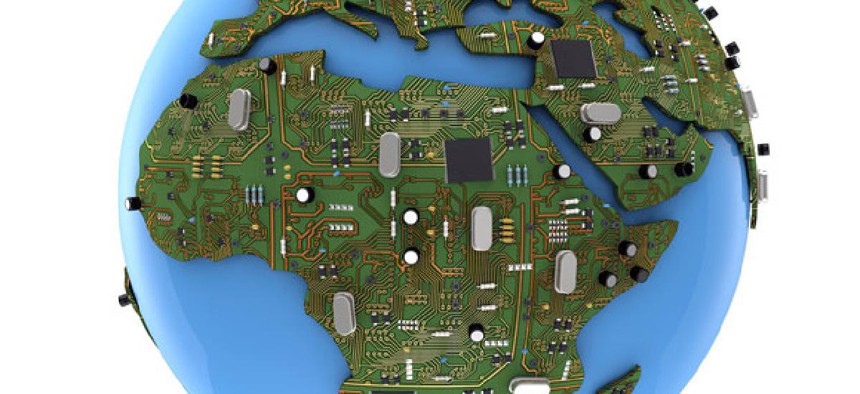Technology from Africa Ensures the Cloud Works When Your Connection Doesn’t

GrandeDuc/Shutterstock.com
For large swathes of the globe, reliably accessing remotely-stored files is a problem.
The “cloud” is great for places that enjoy uninterrupted power and Internet connections. But for large swathes of the world, where blackouts are common and connections unreliable, accessing files stored remotely on the Internet is a massive hassle. Forget about downloading Adobe Creative Suite. Simply working on a Google doc can be aggravating.
That’s why the people behind Ushahidi, open disaster-mapping software, built BRCK (pronounced “brick.”) BRCK is a wi-fi router and mobile modem in one, with eight hours of battery life to keep it going when the power runs out. It can sit in an office connected by ethernet and switch seamlessly to a 3G or 4G connection if the line goes down. It can also support up to 20 wireless connections and has 16 gigabytes of storage so it can work as a back-up network drive. Connect it to some processing power, such as a Raspberry Pi cheap computer, and you have yourself a mini-server.
Erik Herzman, an Ushahidi co-founder, dreamed up BRCK more than a year ago as a solution to connectivity problems at the iHub, Nairobi’s best-known space for hackers to congregate. The result is a working prototype and a Kickstarter crowdfunding campaign that’s raised more than a third of the $125,000 target in less than five days. What makes BRCK stand out from Kickstarter’s clutter is that it solves a very real need: the iHub, for instance, currently has four Internet providers to ensure connectivity, and a BRCK could lessen the need for so much redundancy.
Read the full story on Quartz.
(Image via GrandeDuc/Shutterstock.com)





